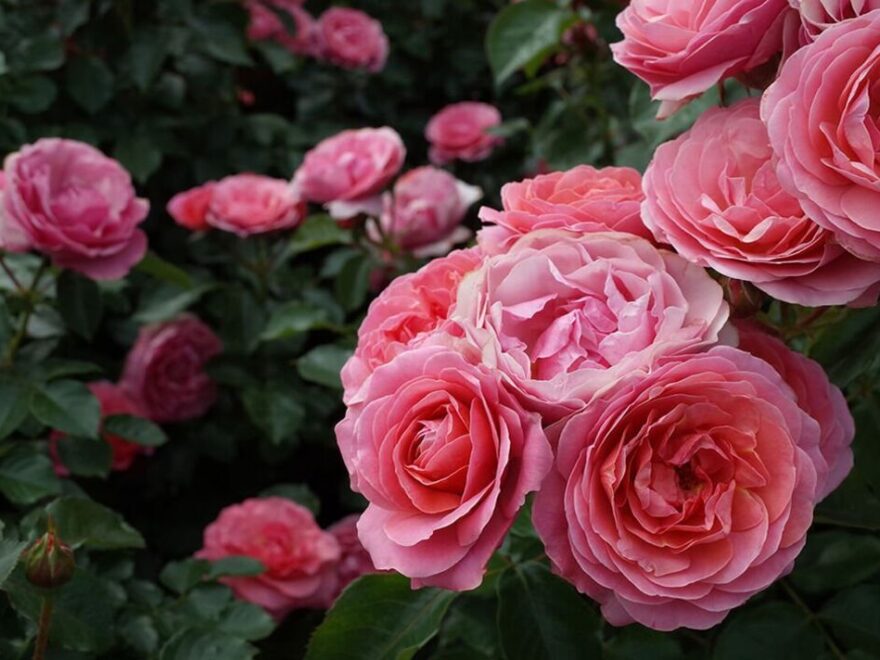Roses can naturally withstand frosty conditions because they enter a dormant state, yet there are extra steps gardeners can take to enhance their protection.
Many experts argue that winterising the plants is the best way to prevent harsh injuries and ensure blooms return year after year.
Winter damage generally occurs when there are strong winds or temperatures drop too drastically, but gardeners have discovered three ways to counter these risks.
One of the most drastic measures for protecting garden roses is pilling mulch in a large mound over the bushes after they’ve been pruned.
The best mulch for this task is one that contains little to no water, as this will prevent the protective case from freezing over too severely.
Read more… £1 superfood ‘slows weeds’ while encouraging roses to flower ‘vigorously’
In essence, roses can be mulched with a thick layer of straw, leaves, and compost, as this provides a protective layer that insulates the soil.
According to gardening enthusiast Nathan Turner, from @nturnerdesgins, and his friend Danny, there is one handy method to protect climbing roses and ensure big blooms in the Spring.
“The idea is to get the roses completely stripped to bare leaves, all the little side shoots removed, and then get tied back to your structure as closely as you can possibly get them,” explained Danny.
“By doing that, then you have this beautiful spring bloom.”
Tying the lateral shoots of her rose bush to a trellice, she continues:m“Each of these little bud eys iis going to shoot a new cane that goes directly up towards the sun and produces a flower.
“So the more lateral canes that you have, the more blooms you have.”
Last but not least, gardening experts frequently argue that it is important to stop fertilising at least six weeks before the first frost, as this will discourage new growth.
In doing so, the plant is more likely to enter and dormant state and activate its only natural defences against the elements, in time for winter.
A rule of thumb is that gardeners should limit their fertilizing to a bare minimum of twice a year; in spring and in mid to late summer.
We use your sign-up to provide content in ways you’ve consented to and to improve our understanding of you. This may include adverts from us and 3rd parties based on our understanding. You can unsubscribe at any time. More info
Source: Read Full Article


